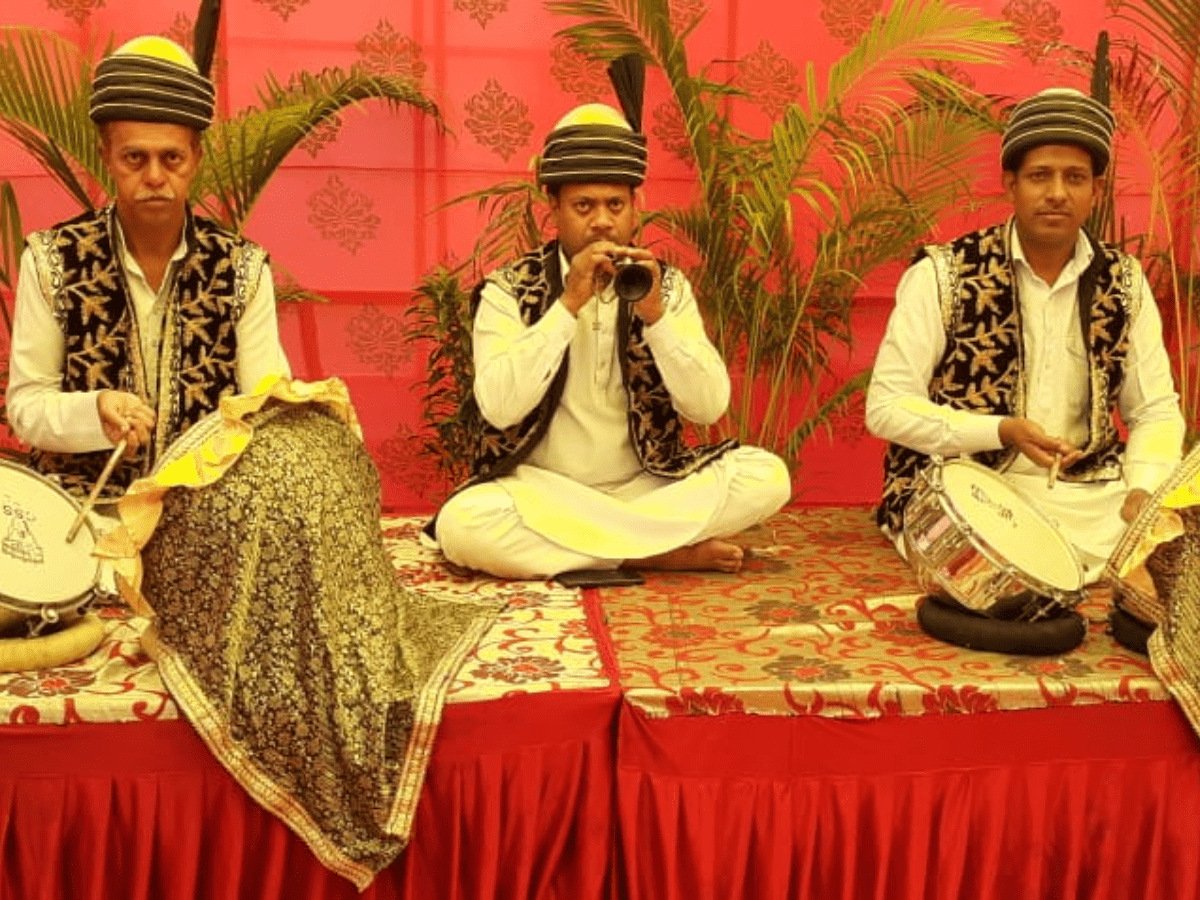
Hyderabad: The Qutb Shahi and Nizam eras ended long ago, but many of their royal traditions or practices continue to be in vogue even today. Among them is the Nagada drum beating or Naubat shehnai playing on special occasions.
In the Aghapura area of Hyderabad live families which are traditional drummers and play the Naubat or Nagada during at functions. “Our forefathers played at the royal palaces during Nizam period. The art passed on from generation after generation to us,” said Abdul Raheem of Shahi Navbat Nawaz at Darulsalam. His the fifth generation from the family practicing the art in Hyderabad.
Naubat and shehnai are played during happy occasions in households or function halls today in Hyderabad. The music is played during marriage and other occasions birthdays, Akhikha ceremonies, engagements, and even inauguration of commercial establishments. “It is away from religious identity, so we get orders from all communities round the year. Muslims, Hindus and Sikh community people invite us to perform on happy occasions,” Raheem explained.
The shehnai is a popular wind instrument in India and the sound is produced by blowing air into a hollow column. The pitch of the note is controlled using fingers to open and close the holes in the instrument. The Naubat or Nakkare is a rounded back and hide head drum played using sticks in pairs. Musicians point out the term ‘naubat’ meant an ensemble of nine instruments. However, now only the drums accompany the shehnai.
Golconda and Mughal era traditions
Historically, Naqqar Khanas (for Naubat) were built across all major palaces and other buildings by kings. Those have survived in places like Hussain Shah Wali’s (who built Hussain Sagar) dargah and the 16th century Badhshahi Ashurkhana in Hyderabad.
According to historians, the naubat was regularly played at royal palaces, gateways and places of importance during the Mughal era (1526-1857). In Hyderabad, during the Nizam era (1724-1948, it was replicated at all the important palaces and gateways to the province.
The Naqqar or Naubat Khana were an integral part of the royal palaces and a team of naubat nawaz – one who beats drums – were appointed. They were well paid for their service. After the Nizam era, the practice ceased in Hyderabad. However, today, the naubat is played during the program along with other local cultural events during Independence Day celebrations.
Historians explain Naubat Khana or Naqqar was a distinct representation of Mughal architecture. It was built for drummers, usually near the entrance of Royal houses or entry points of any province. The drummers would also announce hours of the day, as well as the arrival of the emperor or his distinguished guests.
The Red Fort in Delhi and Taj Mahal, Fatehpur Sikri complex in U.P among other places have Naubat Khanas. In Hyderabad one can find it at different historical sites as well.
Dargahs still continue the tradition
Raheem says round the year the naubat is played twice in morning and evening at the Dargahs Shah Khamosh at Darulsalam and Yousufain. “It is played in the morning and afternoon 3 p.m every day here in Hyderabad at these two places. Caretakers pay us a monthly honorarium for the service,” he stated.
Mohd Shoaib of Shehnai Naubat and Nagada party said the latest trend is the ‘welcome drumming’ on the Nagada in Hyderabad. It is done with with traditional big drums, which are hit with big sticks accompanied by blowing a big trumpet signaling the entry of an important personality.
“A new trend indeed for us and the city as well. Only in epic movies we had seen drummers beating Nagada to welcome guests. Now we do it in marriages and functions,” Shoaib added.
Five to seven families in Aghapura and Charminar in Hyderabad comprise traditional drummers today. They charge anywhere between Rs. 7,000 to Rs. 9,000 for a three hours performance. All of them are regular at high profile events at places like the Chowmahalla Palace, HICC at Madhapur and other star hotels.

